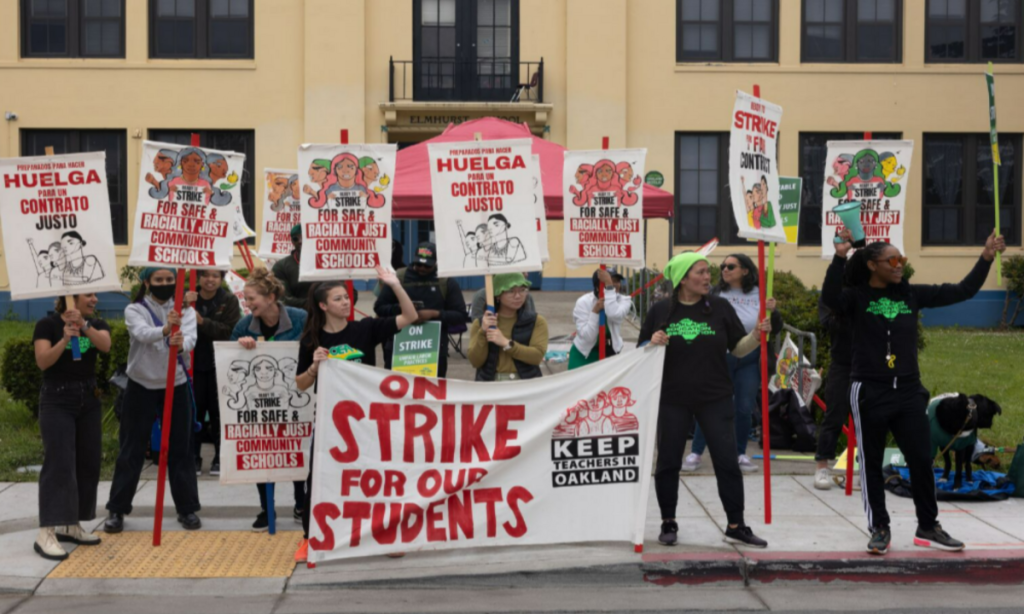Teachers in Oakland, California, have gone on strike after contract negotiations with the Oakland Unified School District (OUSD) failed to reach an agreement.
The strike, led by the Oakland Education Association (OEA), highlights key concerns, including higher wages, better working conditions, and broader support for students and schools.
Thousands of teachers have walked out of classrooms, demanding that the district address their needs. The strike has impacted more than 34,000 students across the district, leaving families uncertain about when classes will resume.
Why Are Teachers Striking?
The primary issues behind the strike include:
Salary Increases and Fair Compensation
Oakland teachers have long argued that their salaries are among the lowest in the Bay Area, despite the rising cost of living. Many educators struggle to afford housing, transportation, and daily expenses in one of the country’s most expensive regions.
According to the Oakland Education Association (OEA):
First-year teachers in Oakland earn about $52,000 annually, which is lower than neighboring districts.
Teachers are demanding a significant salary increase to make their wages more competitive.
The district has offered a raise, but teachers argue it is not enough to match inflation and cost-of-living expenses.
Improved Working Conditions
Many educators feel that overcrowded classrooms, outdated materials, and insufficient staffing make it difficult to provide quality education.
Teachers are requesting:
Smaller class sizes to improve student learning
More classroom resources to enhance education
Additional support staff (such as counselors and librarians)
The OEA believes that these improvements will create a better learning environment for both teachers and students.
“Common Good” Proposals
Beyond salaries and classroom conditions, teachers are pushing for “common good” policies that focus on broader social issues affecting students and the community.
These include:
More mental health services for students
Housing assistance for homeless students and families
Stronger commitments to racial and educational equity
The union argues that supporting students beyond the classroom will lead to better educational outcomes and a healthier learning environment.
The District’s Response
The Oakland Unified School District has expressed disappointment over the strike, stating that it wants to negotiate a fair agreement while keeping schools open.
OUSD officials say:
They have offered a salary increase, but the union has rejected it.
Budget constraints make it difficult to meet all demands.
The district is willing to continue negotiations to reach a fair resolution.
While some schools have remained open with substitute teachers, the strike has significantly disrupted learning, with thousands of students missing regular classes.
Community Support and Reactions
The strike has received mixed reactions from parents, students, and the community.
Supporters of the teachers argue that:
Educators deserve fair pay for their hard work
Better conditions will improve student learning

“Common good” policies will help struggling families
Critics of the strike argue that:
School closures hurt students’ education
The district cannot afford major salary increases
The strike places financial strain on working parents
Many students have also joined teachers on the picket lines, showing their support for improved school funding and teacher pay.
What Happens Next?
As negotiations continue, it is unclear how long the strike will last. Both sides have expressed a willingness to keep talking, but no final agreement has been reached yet.
If the strike continues for an extended period, it could:
Delay the school year
Affect student learning outcomes
Put pressure on city and state officials to intervene
For now, teachers remain on strike, demanding better pay, improved conditions, and stronger support for students and schools.
Disclaimer—Our team has checked this article to ensure its accuracy and eliminate any misinformation. We are committed to providing clear and reliable information for our readers.


